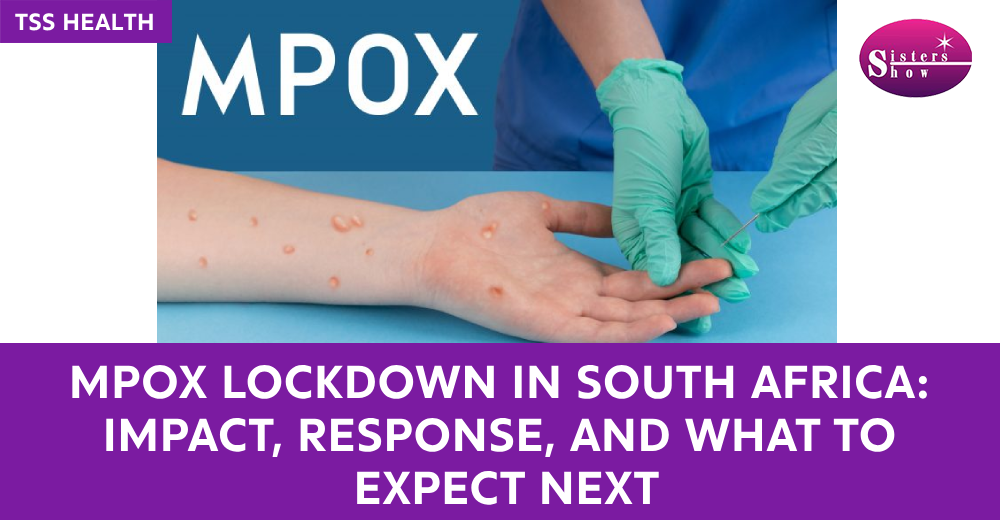
Mpox Lockdown in South Africa: Impact, Response, and What to Expect Next
The mpox outbreak has become a significant public health challenge globally, and South Africa is no exception. With the nation already grappling with various health crises, the recent surge in mpox cases has led to discussions about potential lockdown measures, leaving many citizens concerned about its impact on daily life, the economy, and the healthcare system. In this article, we explore the implications of the mpox lockdown in South Africa, how the country is responding, and what we can expect moving forward.
Table of Contents
ToggleWhat is Mpox?
Mpox, also known as monkeypox, is a viral illness that typically spreads through close contact, including direct contact with infectious lesions, body fluids, or respiratory droplets. Although it is usually mild, it can be fatal in rare cases, especially in vulnerable populations. Symptoms often start with flu-like signs, followed by pus-filled lesions on the body.
The Impact of the Mpox Lockdown in South Africa
The South African government has been on high alert following the rise of mpox cases across the continent. While South Africa has managed to control outbreaks in the past, the increasing number of suspected cases raises concerns about the effectiveness of its current healthcare system. Some of the key impacts include:
- Healthcare System Strain
Similar to COVID-19, the mpox outbreak has stretched South Africa’s already overburdened healthcare infrastructure. Medical facilities are seeing an influx of patients, while healthcare professionals are struggling to balance resources between treating mpox cases and maintaining other essential health services. - Economic Ramifications
If a lockdown is enforced, it will likely disrupt various sectors of the economy, including tourism, retail, and services. South Africa is still recovering from the economic damage caused by the pandemic, and another lockdown could severely hinder this recovery. - Social Impact
Lockdown measures are often accompanied by social isolation and anxiety. A new mpox lockdown could reignite these feelings, especially in communities that were hit hardest by previous lockdowns. Additionally, misinformation about mpox may spread, further worsening the situation.
The Government’s Response
To combat the spread of the virus, the South African government has implemented a series of public health initiatives, including:
- Awareness Campaigns: Educating the public about mpox symptoms, transmission methods, and preventive measures.
- Screening and Testing: Increasing the availability of testing facilities and ensuring people are screened for mpox.
- Vaccination Campaigns: The government is collaborating with global health bodies to secure vaccines to protect the public from the virus.
These efforts are designed to control the spread of the virus, protect the health of South Africans, and prevent the need for more severe restrictions like a nationwide lockdown.
What’s Next for South Africa?
While the government has made progress in managing the situation, the possibility of a lockdown cannot be ruled out. The future will depend on several factors:
- Case Numbers: The rate at which new cases emerge will largely determine whether a lockdown becomes necessary.
- Healthcare Capacity: The ability of hospitals and clinics to handle the rising number of cases will also influence lockdown decisions.
- Vaccination Rollout: How quickly the population can be vaccinated against mpox will be critical in preventing further outbreaks.
With the World Health Organization (WHO) reporting almost 30,000 suspected mpox cases across Africa this year, including over 800 deaths, it’s clear that the situation remains serious. The WHO is urging countries to strengthen their health responses to prevent a larger crisis from unfolding.
What You Can Do
While the situation remains fluid, you can take several steps to protect yourself and your loved ones:
- Stay Informed: Keep up with updates from trusted health authorities like the WHO and South African health bodies.
- Practice Good Hygiene: Wash your hands regularly and avoid close contact with individuals showing symptoms.
- Get Vaccinated: If a vaccine becomes available in your area, make sure to get vaccinated to lower your risk.
Final Thoughts
As South Africa navigates the mpox outbreak, it is crucial to remain vigilant and follow public health guidelines. While lockdown measures may seem daunting, they are often necessary to protect public health and prevent the spread of infectious diseases.
Don’t miss out on the latest updates on South African Health & Wellness. Stay updated with African Health news with The Sisters Show. Get all the details and never miss a beat!
Nearly 30,000 suspected mpox cases have been reported in Africa so far this year, most of them in the Democratic Republic of Congo where tests have run out, the World Health Organization said on Monday. More than 800 people died of suspected mpox across the continent in that time.
Read More:- How to Manage and Prevent Hypertension in South Africa




